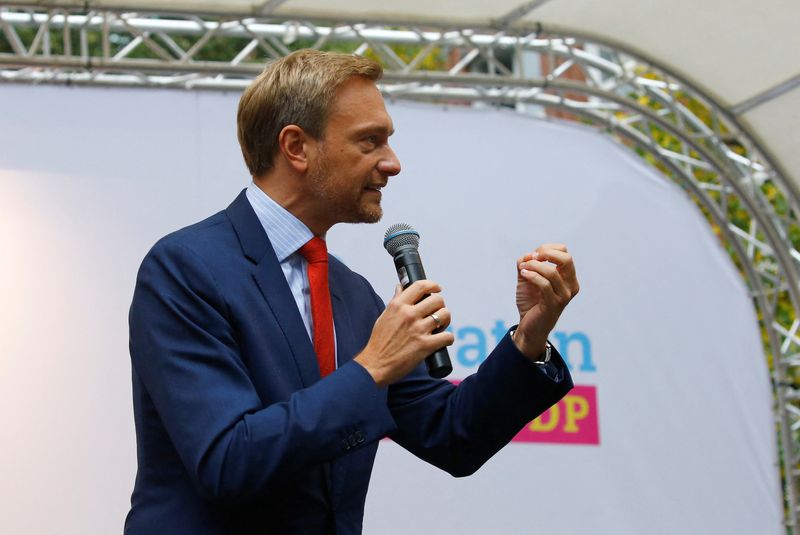By Michael Nienaber
BERLIN (Reuters) -Germany's new Finance Minister Christian Lindner has called on fellow cabinet members to counter-finance any higher spending with budget cuts elsewhere in their departments, two people familiar with the government's 2022 draft budget said on Tuesday.
The guidelines mark a shift in Berlin's fiscal policy after two years of record net new borrowing and unprecedented state spending to cushion the impact of the COVID-19 pandemic on citizens and companies in Europe's largest economy.
Lindner is party leader of the fiscally cautious Free Democrats (FDP), the smallest junior partner in Social Democrat Chancellor Olaf Scholz's three-party ruling coalition that also includes the environmentalist, pro-spending Greens.
During coalition talks last year, the Greens pushed through a demand to super-charge the government's climate funds with unused debt of 60 billion euros ($68.17 billion) to allow more public spending in the shift towards a climate-friendly economy.
Still, Lindner and the FDP are now working to bring the federal budget back in line with currently suspended debt limits from 2023 onwards. This means reducing federal borrowing to a tiny fraction of overall economic output and financing any hike in public spending with new revenues or budget cuts elsewhere.
FINAL EXEMPTION
For this year, Lindner and Finance State Secretary Werner Gatzer plan a third and final exemption from the debt brake rule in the constitution to allow net new borrowing of up to 100 billion euros, two people familiar with the 2022 draft budget told Reuters on condition of anonymity.
If ministries need additional funds, they have to make corresponding savings elsewhere in their department, the sources said.
"Additional spending is to be financed by appropriate counter measures - for example by reallocating funds in the respective department or by increasing revenue with measures such as reducing subsidies," one source said.
Germany took on record new debt of 215 billion euros last year following an unprecedented borrowing of 130 billion euros in 2020 to finance measures during the pandemic.
From 2023 onwards, the government aims to reduce federal borrowing to below 10 billion euros, the source said, adding: "This is doable, but not easy."
Both Scholz and Lindner argue that Germany must return to a more conservative fiscal policy and reduce its debt burden, once the pandemic is over, as the country should prepare itself in good time for any future crises.

In their coalition deal, the three parties also agreed to sound out new ways of public spending such as allowing the Federal Agency for Real Estate (Bima) to finance a push for more social housing with additional new debt which would not be accounted for under the debt rules of the constitution.
($1 = 0.8802 euros)